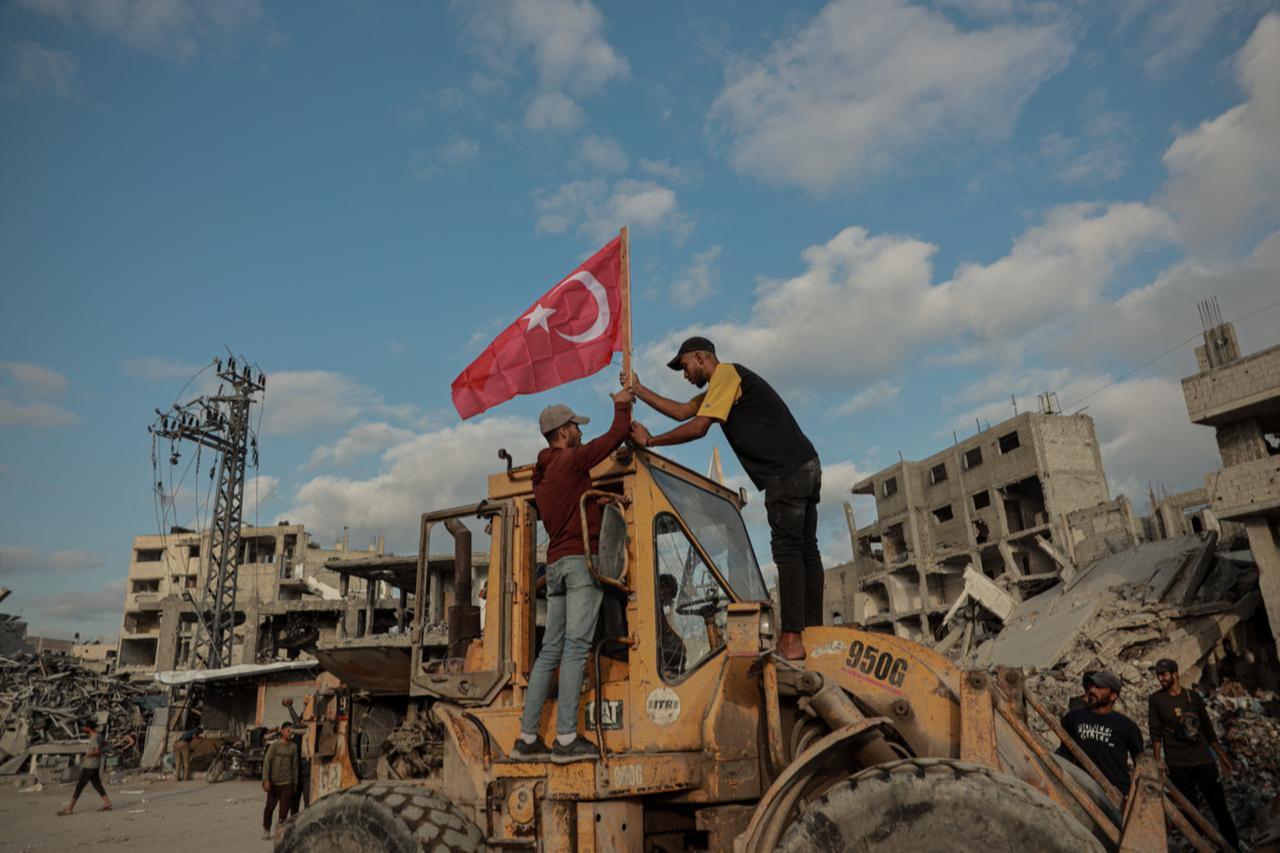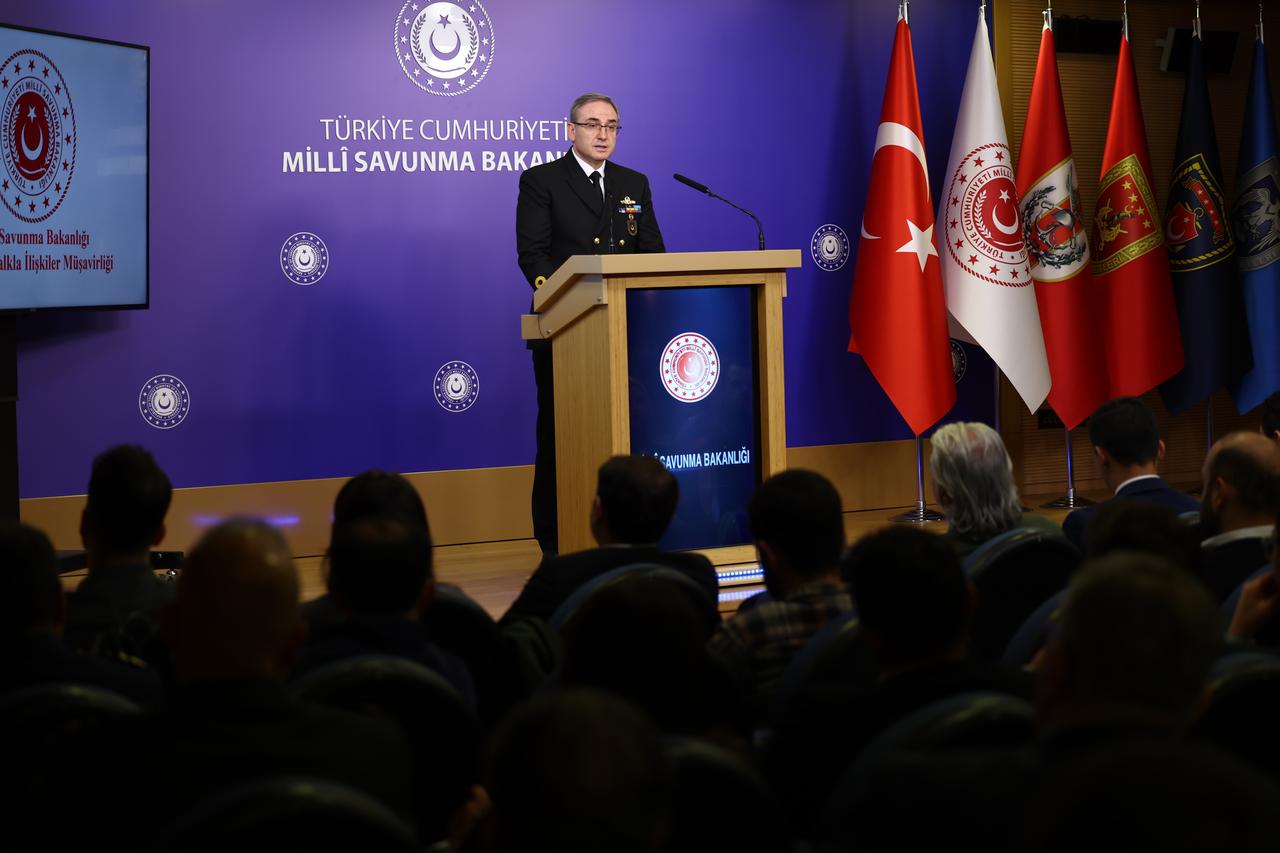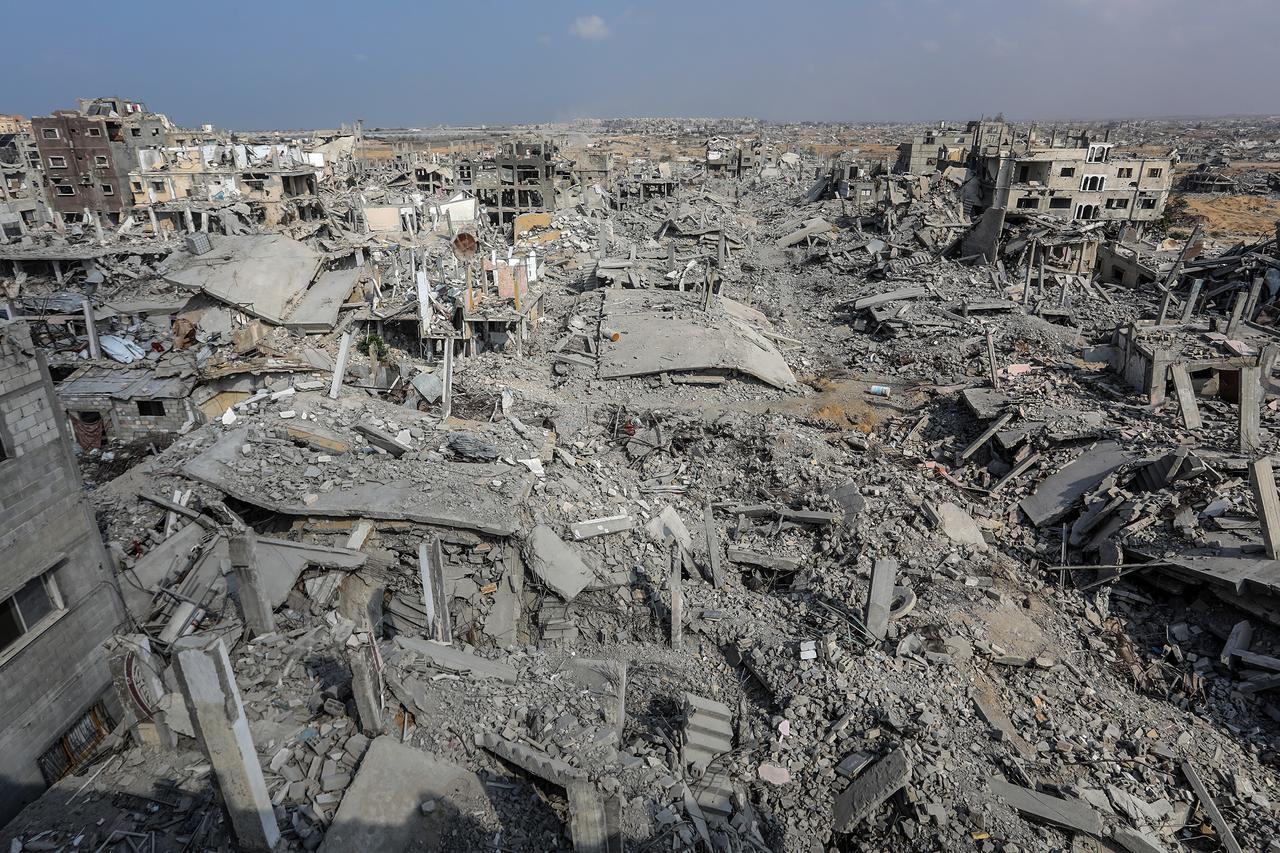
Türkiye’s Defense Ministry on Thursday said its top priority regarding the United Nations-led International Stabilization Force (ISF) in Gaza is to meet the urgent needs of civilians and establish international guarantees for a lasting ceasefire.
“Regarding the International Stabilization Force to be established under the United Nations, our priority is to meet the urgent needs of civilians in the region and to create international guarantees that will ensure the permanence of the ceasefire,” Defense Ministry sources said during a weekly press briefing in Ankara.
The ministry stressed that Türkiye is ready to support all constructive efforts that contribute to regional peace and stability, saying: “The international community must act with a shared sense of responsibility.”
The ministry also underlined the importance of the Civil-Military Coordination Center—currently being established under U.S. leadership—operating in accordance with international law and humanitarian principles to ensure uninterrupted aid delivery.

Türkiye continues to contribute to international initiatives aimed at rebuilding Gaza and making the current ceasefire permanent, the ministry added.
The Gaza ceasefire agreement, brokered by U.S. President Donald Trump, took effect on Oct. 10. The 20-point plan envisions Israel’s phased withdrawal, the release of hostages and prisoners, the reconstruction of Gaza, and the formation of a new governing body without Hamas.
A key component of the deal is the ISF—a multinational, non-combat force tasked with securing humanitarian corridors and supporting reconstruction efforts.
Türkiye is holding talks with other nations over potential participation in the force. Defense Ministry officials said in October that Türkiye’s military is “ready” if needed.
U.S. Secretary of State Marco Rubio said Wednesday that “good progress” is being made on drafting a U.N. Security Council resolution to formalize the deployment of the ISF.
“The force is not meant to engage in combat but to secure areas not under Israeli control as Hamas disarms under the agreement,” Rubio said after a G7 foreign ministers’ meeting in Canada.
He said the goal is to provide basic security to allow the safe flow of aid and the start of reconstruction. “If you really want to see a huge uptick not just in humanitarian assistance but redevelopment, you’re going to need to have security—and that can’t be Hamas,” Rubio said.
The long-term aim, Rubio added, is to see Gaza governed by a credible civilian Palestinian body, not Hamas or any foreign power. “Eventually, there won’t be a yellow line,” he said, referring to the divide between Hamas-controlled and non-Hamas areas.
Rubio also addressed a spike in settler-related violence in the West Bank, warning it could undermine broader diplomatic efforts in Gaza. He cited recent condemnations by Israeli President Isaac Herzog and regional military commanders.
Rubio said he remains optimistic about finalizing a U.N. resolution to authorize the ISF, describing the mission as “essential” to stabilizing Gaza in the post-conflict phase.

Meanwhile, despite the ceasefire, Israeli military operations and airstrikes continued Thursday in eastern Khan Younis, Beit Lahiya, and Gaza City’s Al-Tuffah neighborhood.
According to Gaza’s Health Ministry, at least 245 Palestinians have been killed and 627 wounded since the ceasefire took effect on Oct. 10.
The New Arab reported continued violations, while Wafa news agency said Israeli forces detained 25 Palestinians during raids across Tulkarem, Hebron, and Nablus. Wafa also reported that settlers set fire to a mosque near Salfit and wrote racist graffiti on the building.
Gaza officials warned Thursday of deepening environmental and public health crises. Khan Younis Mayor Alaa al-Din al Batta told Al Jazeera that more than 90% of vegetation has been destroyed and access to landfills is severely restricted, raising fears of disease outbreaks.
The Palestinian Red Crescent said earlier this week that 80% of Gaza’s water is contaminated. U.N. data released Nov. 3 found that over 81% of buildings in Gaza have been damaged or destroyed.
The G7 foreign ministers reiterated support for the Trump-backed ceasefire deal but expressed concern about continued restrictions on humanitarian aid delivery.